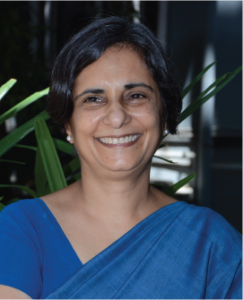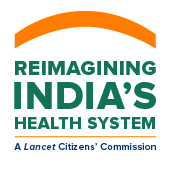In Conversation: Gagandeep Kang, Clinician Scientist and Professor in the Department of Gastrointestinal Sciences, Christian Medical College
November 08, 2022

When I joined the Christian Medical College (CMC), Vellore in the early 1980s, the Rural Orientation of Medical Education or ROME programme recommended by the World Health Organisation in the 1970s had been implemented by the Department of Community Health. Although it was intended that all medical colleges in India should implement the programme, most did so in letter and not in spirit, if they did it at all. CMC tried out three different models of engagement in three blocks of Tamil Nadu. The first was where CMC developed a demographic surveillance system, weekly outreach clinics with referral pathways including a secondary care hospital, trained field staff to provide maternal and child health services and mapping of non-communicable diseases. The second was a lighter touch with some community mapping and training of volunteers for referrals and a secondary care hospital, but with an additional focus economic and social issues with training programmes in farming and animal husbandry. The third was engagement and provision of support to the government when requested including sending doctors to the primary health centres. Through their first three and a half years of training medical students had different programmes to familiarise us with the communities we worked with and the services they received.
This solid grounding at an early stage in my education has been the context of all the research I do. Interventions that do not reach people are not fit for purpose.
As a co-Chair, I have been mainly responsible for the evidence synthesis that is foundational to future pathways that do not rebuild processes and structures that have not worked. At CMC, we arranged a series of 40 classes for young doctors and research fellows to understand and learn the processes for the conduct of reviews. These young people then formed teams that have taken on over a dozen topics for which scoping reviews have been or are being conducted. Additionally, we have been finding the resources to support the citizens’ survey, the governance and finance workstreams.
We have a fragmented healthcare system, and the provision of care depends on the ability to access and pay for it. Primary healthcare has been focused mainly on maternal and child health, and while indicators show the improvements in mortality and morbidity on a time scale of decades, our progress on nutrition in particular has been poor. Rapid urbanisation and life style changes are exploding non-communicable diseases and the public healthcare system has not been able to keep pace with infrastructure, manpower or supplies that are needed for quality care. In private healthcare, the profit model for outpatient and inpatient care results in unnecessary investigations and treatments, which are aided by a poor regulatory system.
We have demonstrated in India that when there is political will and commitment much can be done. I hope that the Commission’s assessment of barriers and recommendations, particularly with regard to generating and retaining sufficient skilled manpower, the use of technology for enablement and empowerment, governance that supports the public sector and regulates the private sector to provide evidence based appropriate care and financing will be utilised by the government to meet India’s commitment to the Sustainable Development Goals, where a healthy population is fundamental to achievement of the majority of the SDGs.
